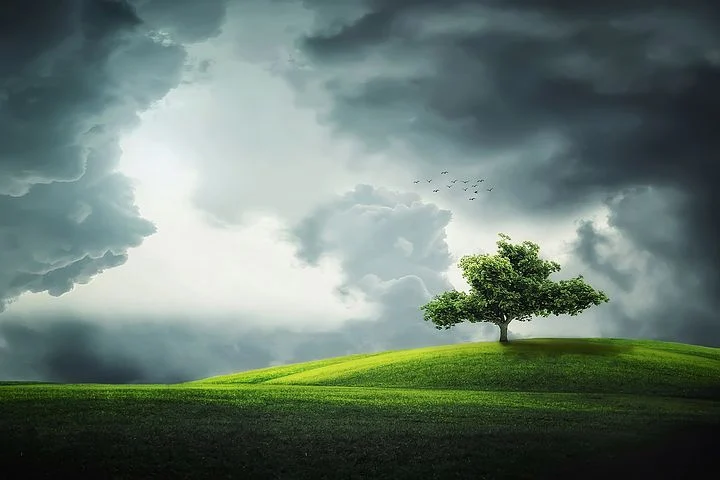Read The Bible on the Life Hereafter, pp. 185–194
THE GREAT WHITE THRONE (continued)
C. THE SCENE THAT IS ENACTED NEAR IT, verses 12b, 13b
Books are opened: the records of the life of every person (Dan. 7:10). Opened also is the book of life, containing the names of all believers and their deeds (cf. Rev. 3:5; 13:8). And on the basis of what is written in these books each person is judged according to hit works (cf. Matt. 16:27; 25:31 if.; Acts 2:23; Rom. 14:10; II Cor. 5:10). This “according to works” doctrine of verse 12b is repeated in verse 13b. It must have been considered highly significant.
But is not this, after all, a proclamation and divine endorsement of “salvation by works”? Is salvation then based on morality: being good and doing good? Is the well-known poem wrong when, in connection with the final judgment, it has the lines:
“The moral man came to the judgment, But his self-righteous rags would not do: The men that had crucified Jesus Had passed off as moral men too”?
But obviously that cannot be true. The lines are correct. And the book of Revelation is not a whit behind other books of the Bible in ascribing salvation completely to grace, that is, to the blood of the Lamb. It speaks of Jesus as the Lamb, and even presents him as the slaughtered Lamb (5:6). On its golden pages these words are written:
“Unto him that loveth us and loosed us from our sins by his blood…be the glory and the dominion forever and ever…Worthy art thou to take the book, and to open the seals thereof: for thou wast slain and didst purchase unto God with thy blood men of every tribe, and tongue, and people, and nation…These are they that come out of the great tribulation, and they washed their robes, and made them white in the blood of the Lamb…And they overcame him because of the blood of the Lamb” (1:5; 5:9; 7:14; 12:11; cf. 22:14).
Why, then, this sudden and repeated emphasis on works? I answer:
1. Because our works will show whether or not we have accepted the slaughtered Lamb as our own Savior, and perform works of gratitude out of appreciation to him who purchased us with his blood.
2. Because these works will also indicate the degree of our loyalty to the slaughtered Lamb. The measure or degree of a person’s reward (or punishment, in the case of the wicked) is determined, in part at least, by the measure or degree of his loyalty (or disloyalty) to Christ. All is of grace. Works merit nothing at all. But they are of great value as demonstrations or proofs.
D. THE VERDICT THAT ISSUES FROM IT, verse 15
If anyone was not found written in the book of life he was cast into “the lake of fire,” hell as a place of punishment for both body and soul. Although the statement strikes us with awe, which is exactly what it should do, it must not be lost sight of that its main purpose is not to tell us what happened to the impenitent but rather to set forth the final and complete defeat of all those wicked people and forces that have tried to overthrow Christ and his Church. Let it be borne in mind that also the present paragraph is an integral part of the vision concerning The Doom of the Dragon –Victory Through Christ. Meanwhile, those whose names arc in the book of life inherit all the blessings of the new heaven and earth. See Revelation 21 and 22.

Questions
1. Verse 1: Why is this throne called – “great” and “white”?
2. Does not John 5:24 teach that believers “do not come into judgment? Explain please.
3. Is this great white throne the some as “the judgment-seal of Christ”?
4. What makes this final judgment necessary?
5. Will THE SINFUL DEEDS of believers be revealed in the final judgment? If your answer is “Yes,” how then do you account for the fact that in the judgment-scene of Matthew 25:31–40 there is mention only of the good deeds?
6. If your answer is “No,” how do you explain Ecclesiastes 12:14; Matthew 12:36; Romans 2:16; and I Corinthians 4:5?
7. Of what practical value is meditation on the final judgment?
